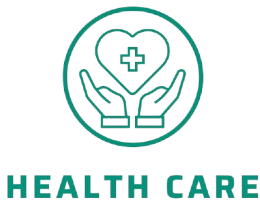Introduction: Your Body is Speaking—Are You Listening?
We’ve all felt it—that tight, sore, sometimes burning ache in our muscles after a workout, long day, or even just a wrong movement. While some muscle soreness is normal and healthy, chronic or intense pain can hinder your motivation, sleep, and overall quality of life.
Most people rush to painkillers or creams—but what if you could heal muscle pain naturally, without harsh chemicals or dependency? The good news is: you can.
This guide dives into proven, natural remedies that not only relieve muscle pain but also help your body recover stronger and faster.
1. Understanding Muscle Pain: Why It Happens
Muscle pain usually falls into two categories:
- DOMS (Delayed Onset Muscle Soreness): Appears 12–48 hours after intense activity.
- Strain or Injury: Caused by overstretching or tearing muscle fibers.
Both result in inflammation, tightness, and discomfort. But natural healing methods work with your body—not against it—to ease pain and repair tissue.
2. Nature’s Medicine: Top Natural Remedies for Muscle Pain
🌿 A. Heat and Cold Therapy
- Cold compress: Reduces inflammation and numbs sharp pain (ideal in first 24–48 hours).
- Warm compress or bath: Increases blood flow and relaxes muscles (best after initial inflammation subsides).
Pro Tip: Alternate hot and cold for 15–20 minutes each to boost circulation and reduce swelling.
🌱 B. Magnesium-Rich Foods & Supplements
Magnesium helps relax muscles and repair tissue. Low levels may cause cramping and tension.
Best Natural Sources:
- Bananas
- Dark leafy greens
- Pumpkin seeds
- Almonds
- Avocados
Epsom salt bath (magnesium sulfate): Soaking for 20 minutes can drastically reduce soreness.
💧 C. Stay Hydrated
Dehydration leads to stiff, cramping muscles. Drink at least 8–10 glasses of water daily, more if you’re active or sweating.
Add natural electrolytes by infusing your water with:
- Lemon
- Mint
- Pink Himalayan salt
- Coconut water
🌼 D. Essential Oils for Muscle Relief
Certain essential oils have natural anti-inflammatory and pain-relief properties.
- Peppermint oil – Cooling and numbing
- Lavender oil – Calming and soothing
- Eucalyptus oil – Anti-inflammatory
How to Use: Mix 3–5 drops with a carrier oil (like coconut or almond) and massage into sore areas.
3. Movement Heals: Gentle Exercises & Stretching
Total rest isn’t always the answer. In many cases, gentle movement speeds up recovery by increasing circulation and flexibility.
Try:
- Light walking
- Yoga for muscle relief
- Foam rolling (self-myofascial release)
- Dynamic stretching (arm swings, leg circles)
Avoid heavy lifting or intense workouts until soreness improves.
4. Natural Anti-Inflammatory Foods That Support Healing
What you eat can be your best medicine. Certain foods fight inflammation and promote muscle repair.
Superfoods for Muscle Recovery:
- Turmeric (with black pepper for absorption)
- Ginger
- Salmon or flaxseeds (rich in omega-3s)
- Cherries or tart cherry juice
- Green tea
Avoid sugary drinks, fried foods, and excessive caffeine—they slow healing.
5. Sleep: The Forgotten Healer
Muscles repair and grow while you sleep. Without enough rest, your body can’t recover properly.
- Aim for 7–9 hours of quality sleep
- Avoid screens 1 hour before bed
- Use a supportive pillow and mattress to prevent stiffness
Bonus Tip: Drink chamomile tea or take magnesium glycinate before bed for deeper relaxation.
6. Herbal Support & Traditional Remedies
Some powerful herbs have been used for centuries to ease muscle pain:
- Ashwagandha – Reduces stress-related tension
- Boswellia (Indian frankincense) – Anti-inflammatory
- Devil’s claw – Eases arthritis and muscle stiffness
- Arnica (homeopathic or topical) – Excellent for bruises, soreness, and swelling
Always consult with a healthcare provider before starting any new herbal supplement.
7. Breathwork & Stress Relief Techniques
Muscle pain isn’t always physical. Stress causes your muscles—especially in the neck, shoulders, and back—to tense up unconsciously.
Natural stress-relief methods:
- Deep belly breathing (inhale 4, hold 4, exhale 4)
- Meditation
- Mindfulness walks
- Listening to calming music
- Practicing gratitude journaling
Conclusion: Healing is in Your Hands
Muscle pain may feel like a burden, but it’s also a sign: your body is working, adapting, and growing. With the right natural tools and lifestyle habits, you can ease soreness, prevent injury, and recover like a warrior.
You don’t need to numb the pain—you need to listen, nourish, and heal it.
So next time your muscles ache, skip the pill bottle. Reach for a warm bath, a turmeric tea, a yoga mat—or simply, a good night’s sleep.
Your body is not your enemy. It’s your partner. Treat it with love, and it will return the favor with strength.
